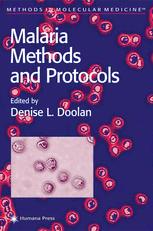

Most ebook files are in PDF format, so you can easily read them using various software such as Foxit Reader or directly on the Google Chrome browser.
Some ebook files are released by publishers in other formats such as .awz, .mobi, .epub, .fb2, etc. You may need to install specific software to read these formats on mobile/PC, such as Calibre.
Please read the tutorial at this link: https://ebookbell.com/faq
We offer FREE conversion to the popular formats you request; however, this may take some time. Therefore, right after payment, please email us, and we will try to provide the service as quickly as possible.
For some exceptional file formats or broken links (if any), please refrain from opening any disputes. Instead, email us first, and we will try to assist within a maximum of 6 hours.
EbookBell Team

4.8
14 reviewsDespite considerable scientific and medical effort over the past decades, malaria remains the most important human parasitic disease. It is responsible for up to 3 million deaths and another 300-500 million new cases each year, and is becoming resistant to the current chemoprophylactic and chemotherapeutic agents. In Malaria Methods and Protocols, internationally respected scientists and clinicians describe in step-by-step detail their most useful conventional and cutting-edge techniques for the study of malaria. Areas covered include clinical and laboratory diagnosis and typing, animal models, molecular biology, immunology, cell biology, vaccinology, laboratory models, and field applications. Each readily reproducible protocol has been tested, standardized, and optimized for experimental success, and includes many laboratory notes on troubleshooting, avoiding pitfalls, and interpreting results. Several of the most widely used methods are either described here in detail for the first time or have been thoroughly updated since their original publication (e.g., in vitro culture of Plasmodium parasites and in vitro growth inhibition assay).
State-of-the-art and highly practical, Malaria Methods and Protocols makes available to basic and applied researchers today's only comprehensive collection of essential laboratory methods for diagnosing malaria, characterizing the parasite, understanding the interaction between the human host and Plasmodium parasite, and developing effective preventive measures.